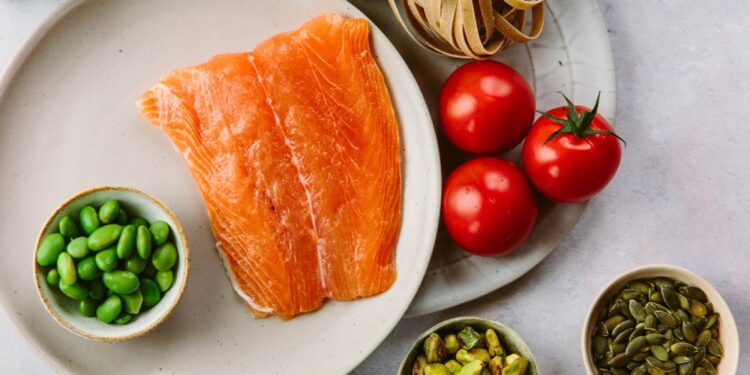A balanced diet is a diet that contains differing kinds of foods in certain quantities and proportions so that the requirement for calories, proteins, minerals, vitamins and alternative nutrients is adequate and a small provision is reserved for additional nutrients to endure the short length of leanness.
In addition, a balanced diet ought to offer bioactive phytochemicals like dietary fiber, antioxidants and nutraceuticals that have positive health advantages. A balanced diet should offer around 60-70% of total calories from carbohydrates, 10-12% from proteins and 20-25% of total calories from fat.
Your plate should be composed of the following foods.
1. Make most of your meal vegetables and fruits – ½ of your plate
Aim for color and variety and remember that potatoes don’t count as vegetables because of their negative impact on blood sugar.
2. Go for whole grains – ¼ of your plate
Whole and intact grains – whole wheat, barley, wheat berries, quinoa, oats, brown rice, and foods made with them, such as whole wheat pasta – have a milder effect on blood sugar and insulin than white bread, white rice, and other refined grains.
3. Protein power – ¼ of your plate
Fish, poultry, beans, and nuts are all healthy, versatile protein sources – they can be mixed into salads, and pair well with vegetables on a plate. Limit red meat and avoid processed meats such as bacon and sausage.
4. Healthy plant oils – in moderation
Choose healthy vegetable oils like olive, canola, soy, corn, sunflower, peanut, and others, and avoid partially hydrogenated oils, which contain unhealthy trans fats. Remember that low-fat does not mean “healthy”.
5. Drink water, coffee, or tea
Skip sugary drinks, limit milk and dairy products to one to two servings per day, and limit juice to a small glass per day.
Conclusion
The type of carbohydrate in the diet is more important than the amount of carbohydrate in the diet, because some sources of carbohydrate – like vegetables (other than potatoes), fruits, whole grains, and beans – are healthier than others. You should avoid sugary beverages, a major source of calories – usually with little nutritional value in the diet. Use healthy oils, and it does not set a maximum on the percentage of calories people should get each day from healthy sources of fat.


































































































































































































